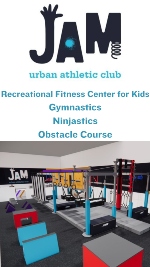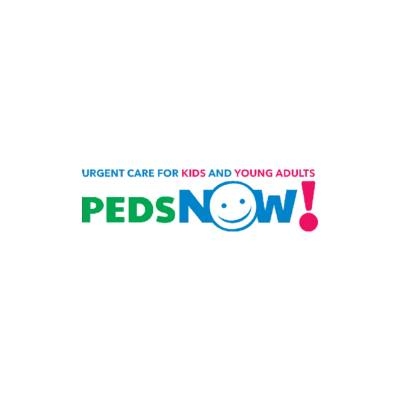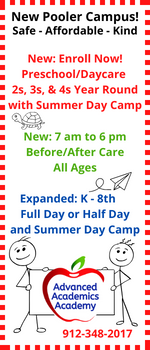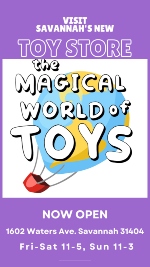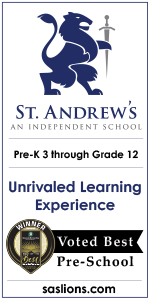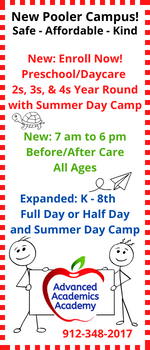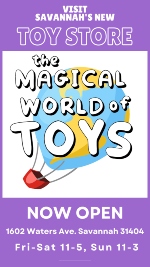Summer Learning Games for Preschoolers (How to keep your preschooler learning through summer)
 Below is a guest post by Jane Madison, an early childhood education expert and pre-K teacher at Saint Peter the Apostle School on Wilmington Island.
Below is a guest post by Jane Madison, an early childhood education expert and pre-K teacher at Saint Peter the Apostle School on Wilmington Island.
As the school year comes to an end, parents often want ideas for activities during the summer to help their child maintain the skills learned in school. It is also important for parents to know the abilities young children need to be successful in school, and what to work toward.
The goals and activities discussed here are geared toward children finishing a pre-kindergarten program, but all of the activities are useful and fun and can be adapted for younger or older children. Remember, children learn naturally through play.
Children entering kindergarten are expected to identify some letters of the alphabet by name. They should be able to recognize all of the letters in their first name, and also be able to tell you how to spell it. Many children can write their name, but have no idea what the letters are called. Some children can spell their name, but don’t recognize it in print. We want them to be able to do both. To help your child learn how to spell his name, make up a song to the tune of BINGO or Wheels on the Bus, substituting the letters of your child’s name. Then point to the written letters as you sing it.
The pre-kindergarten student at this time of year should be able to hear beginning sounds of words and identify words that start with the same sound, such as ball and bike. (Alliteration)
They should also be able to hear rhyming sounds, and tell you two or three words that rhyme together. Nonsense words DO count in this activity.
In Math, students should be able to count objects to 12 or more, recognize numerals to 10 or more, name shapes and make simple patterns.
Also it is important to help your child to work independently. He should be able to put together a puzzle without talking to you, set a place setting at the table without getting distracted, draw a picture, or write his name without constantly looking to you for approval. A child this age should be able to follow a two step direction without loosing focus. An example of this is, “Go get your bathing suit and come to my room.”
Below is a list of games and activities you can do with your child to help him continue to maintain the skills he has learned in school this year. Only play these games for 10 or 15 minutes each day. If your child wants to play longer you may do so, but you want your child to love learning and have fun while doing it!
Please, please, please read and discuss books with your child everyday, limit TV, DVD’s, and video games and play cards or board games in which people interact with each other, not a screen.
Rhyming and Alliteration
(These games can be played to pass the time when you are someplace you have to wait, or when you’re in the car.)
• Name something that rhymes with_____. , chair, desk, sign, whatever you see
• Tell me a word that starts with the same sound as ____.
• I see two things that start with “b”. Make the b sound, bat and ball
• Name people in the family who have names that start with the same sound
• I’m thinking of something that swims that starts with the “f” sound( make sound) and rhymes with wish, (fish)
To read the rest of this post in its entirety, click here.







